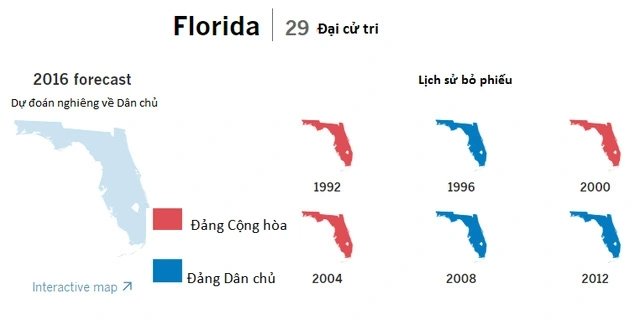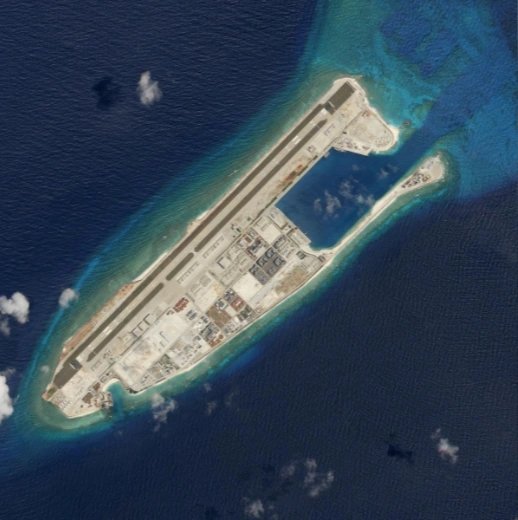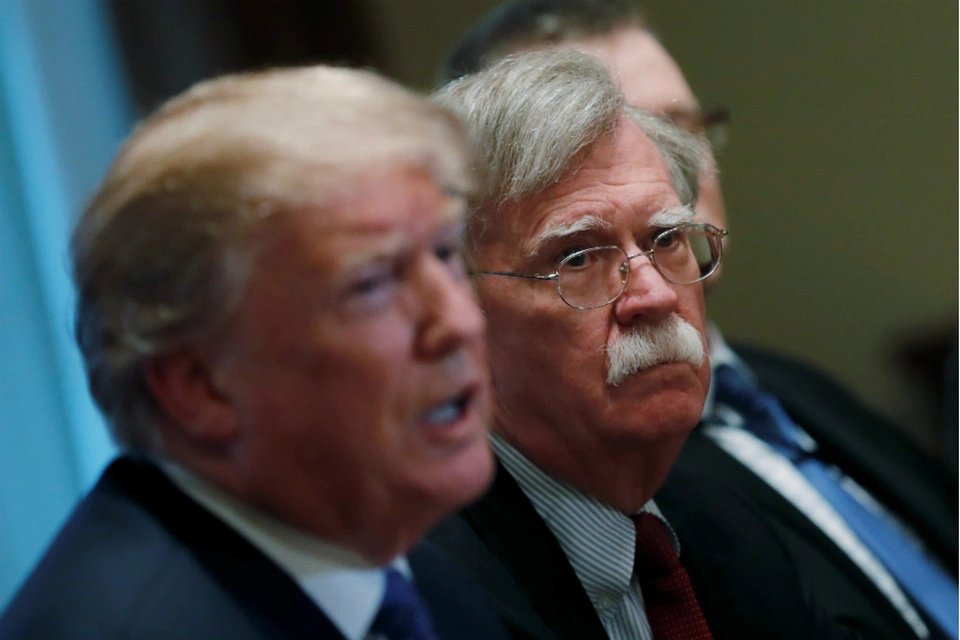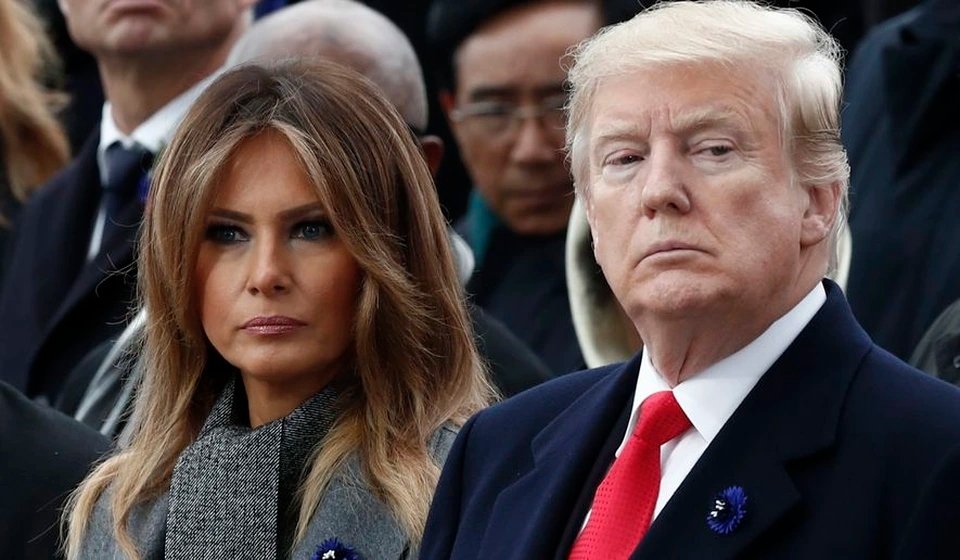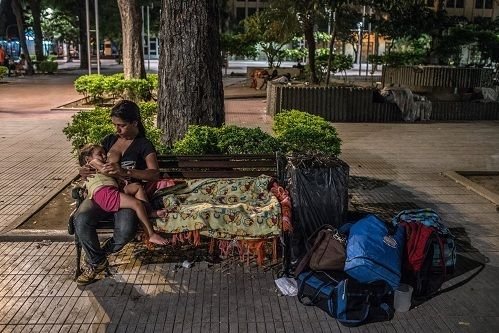
Hernandez breastfed her two-year-old daughter while sitting on a makeshift sleeping area surrounded by trash.
For the past three weeks, Wilya Hernandez, her husband and two-year-old daughter have been sleeping rough on trash-filled sidewalks in Cucuta, a town on the Colombian border with Venezuela, according to the New York Times.
`I need angel’s help,` the young mother said with tears in her eyes.
That is the situation of thousands of compatriots like her who fled to Cucuta, where they accepted having to struggle to make a living in the new land, rather than suffer hunger and thirst in the context of Venezuela’s economic inflation of more than 2,600% last year.
In Brazil, the flow of refugees is flooding into the cities and towns of Roraima state, in the north of the country, on the border with Venezuela.
`This force is not to stop Venezuelans, but to understand who is coming and each person’s need for help,` said Torquato Jardim, Minister of Justice and Security.
The military is setting up a temporary hospital in Roraima to provide basic health care to many malnourished Venezuelans.

Venezuelans line up to ask for charity food from a non-profit organization in Cucuta.
Colombian authorities said every day about 30,000 Venezuelans across the border go to Cucuta town, asking to enter the neighboring country.
Cailey Dominguez, 25 years old, was in a long line of people waiting to have their passports stamped.
`Venezuela used to have everything,` she said.
Not doing enough
Dominguez is from Margarita Island, on the north coast of the country.
If they are lucky, they earn about 5 USD a day, enough to buy food, drinks and use the restroom in the cafe.
`I sold my long hair to make money to support my daughter,` Hernandez said, pointing to the short hair close to the nape of her neck.
Local people also appear cold towards Venezuelans.
`They treat us like rats and mice,` Fernandez said.
Freddy Munoz, 30 years old, from Maracay, Venezuela, sells canned tuna on the street.
`Driving without braking when I crossed the street,` Munoz said, slipping off the dirty sock from his foot, revealing his bruised heel from being crushed by the car.
Munoz was robbed at knifepoint by two Colombians.

Munoz sells canned fish on the streets of Cucuta.
As for Hernandez, she often asks local people for food to feed her children, but not everyone is charitable.
`If I don’t have enough money to go to the bathroom, I have to go right on the street. At that time, passersby will scold me severely,` she said.
Cucuta police, whose job is to clear homeless people from public places, said the majority of street criminals they apprehend are Venezuelan.
Colombian authorities recently raided a public basketball court in the town that residents called the `Caracas hotel`, a temporary shelter for about 900 Venezuelans.
Local people are struggling to cope with the influx of foreigners into the town.
`We were all living well then, I often had customers coming from across the border,` Posada said, as a group of Venezuelan homeless people began to pass by her store.
Colombian President Juan Manuel Santos, along with the ministers of foreign affairs, defense and interior, went to Cucuta in early February to discuss how to solve `a big problem that Colombians have never experienced before`.
Mr. Santos announced a number of measures to resolve the crisis, including dispatching special forces to fight people gathering on the streets, along with promises to provide aid and stricter border controls.
Hernandez and her husband and children, who entered Colombia without a stamped passport, are at risk of deportation under Mr. Santos’ new policy announced this month.
`We want to survive, but now we have nothing left,` she said.



